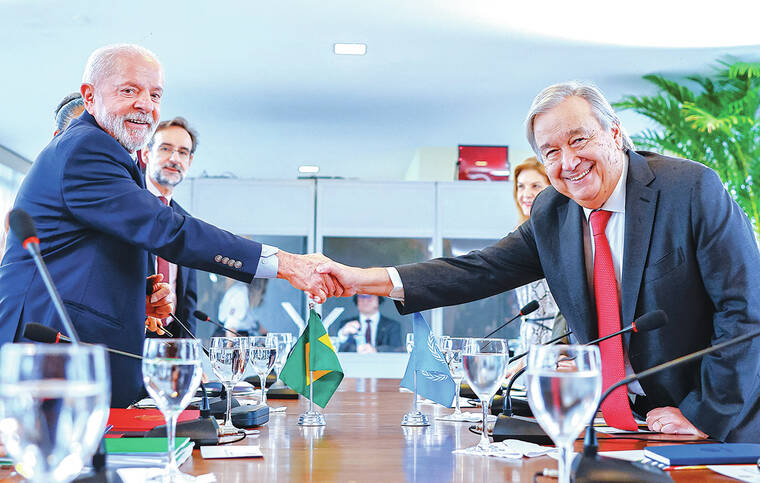G20 talks in Rio reach breakthrough on climate finance, sources say
RIO DE JANEIRO — Diplomatic tensions over global warming spilled over into the G20 summit negotiations in Brazil this week, with sources saying the 20 major economies reached a fragile consensus on climate finance that had eluded U.N. talks in Azerbaijan.
Heads of state arrived in Rio de Janeiro on Sunday for the G20 summit and will spend Monday and Tuesday addressing issues from poverty and hunger to the reform of global institutions. The talks must now also grapple with how to address escalating violence in Ukraine after a deadly Russian airstrike on Sunday.
Still, the ongoing U.N. climate talks have thrown a spotlight on their efforts to tackle global warming.
While the COP29 summit in Baku, Azerbaijan, is tasked with agreeing a goal to mobilize hundreds of billions of dollars for climate, leaders of the Group of 20 major economies half a world away in Rio are holding the purse strings.
G20 countries account for 85% of the world’s economy and are the largest contributors to multilateral development banks helping to steer climate finance.
“The spotlight is naturally on the G20. They account for 80 percent of global emissions,” U.N. Secretary General Antonio Guterres told reporters in Rio de Janeiro. He expressed concern about the state of the COP29 talks in Baku and called on G20 leaders to do more to fight climate change.
“Now is the time for leadership by example from the world’s largest economies and emitters,” Guterres said.
U.N. climate chief Simon Stiell wrote a letter to G20 leaders on Saturday imploring them to act on climate finance, including boosting grants for developing nations and advancing reforms of multilateral development banks.
However, the same fights that have plagued COP29 since it began last week became central to G20 negotiations, according to diplomats close to the Rio talks.
COP29 must set a new goal for how much financing should be directed from developed countries, multilateral banks and the private sector to developing nations. Economists told the summit it should be at least $1 trillion.
Wealthy countries, especially in Europe, have been saying that an ambitious goal can only be agreed if they expand the base of contributors to include some of the richer developing nations, such as China and major Middle Eastern oil producers.
But early Sunday morning, negotiators agreed to a text mentioning developing nations’ voluntary contributions to climate finance, stopping short of calling them obligations, according to two diplomats.


